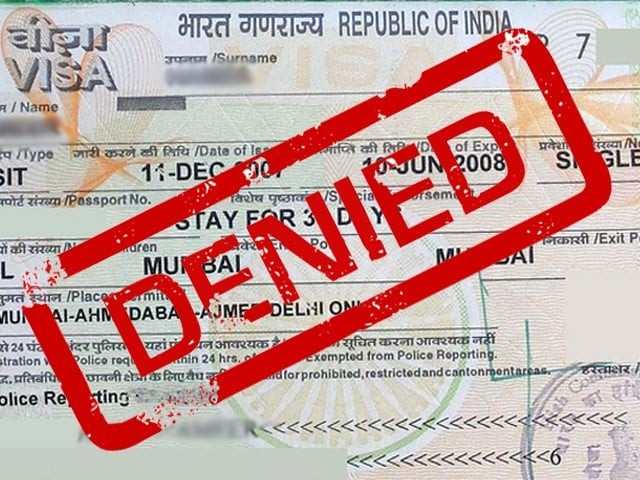On the phone, the clerk is confused.
“I’m calling about my visa status,” I tell him, and he asks a standard question – “When did you submit the application?”
“May 5, 2015,” I say, reciting the date American-style.
He pauses as though he’s only heard the first part. In the silence, I can almost hear him thinking,
“May 5th? But that’s today.”
It’s not.
I applied for a journalist visa from the Indian government one year ago. The consulate in my hometown, Chicago, has gone from estimating a two week wait to one month, then three months to no particular date. The latest iteration is sheer confusion and an admission I never expected – they say even they don’t know what the problem is.
For years now, journalists have had trouble reporting from India. In 2007, for instance, the government deported a young American named Sabrina Buckwalter after she reported for The Times of India on a rape case in rural Maharashtra. Despite years of trying, she’s only regained a short-term visa once – and was forced to leave just a few days into her visit. Other journalists have been sent back, deported, or denied visas outright.
The most sanguine journalists would say these difficulties are simply a part of global reporting. I’d say I’m resigned. In my years working and writing in Africa and Asia (including a lengthy stint in Bangladesh and a separate trip to post-earthquake Nepal), I’ve passed more than a few hurdles.
And I recognise that it is good to not be denied. But I didn’t expect my visa to disappear, as it were, for an entire year.
May 9, 2016
It’s the Monday after I’ve phoned the customer service line and no news is forthcoming. I decide to go to the consulate. The visa delay has gone on so long, I’d completed the work I’d wanted to do in India, so I won’t be traveling. But my time in South Asia honed my inborn persistence into full-fledged obduracy and, anyway, the situation piqued my curiosity.
Plus, I feel nostalgia. Going to the consulate on this ‘anniversary’ justifies wearing my favourite Indian clothing, and when I open the tissue covering the white shalwar kameez with a mayur motif that I’d had handmade in the Bengal, I’m surprised at how crisp and lovely and comfortable it still seems. It’s this day’s source of a thought I’ve had many times; I miss South Asia.
In the lobby of the local consulate, though, a clerk reminds me that I don’t miss everything. He leaves me waiting 20 minutes, doesn’t say hello and wouldn’t give his name. He doesn’t want me to record him. He says journalist visas take “six to eight months,” but can’t offer a reason why it’s been 12. I press him to let me talk to his boss. He threatens to call security to throw me out, and then stalks away grumpily.
For another 15 minutes, I stand alone in the empty marble hall, emailing the consulate general from my smartphone.
“Does the Indian consulate have any intention of ever processing my visa application?” I ask.
“Is this refusal to process a visa now standard to all journalists? Could you comment on the effect this is having on democracy in India?”
No reply is expected.
Like the consulate, I can think of no real reason this passive visa denial should exist.
When I first applied, processing centre bureaucrats asked over and over if I’d be shooting a video. It seemed connected to the Indian response to India’s Daughter, the British documentary that had then just come out and been banned. I told them six times that I don’t do videos, and then asked outright if this was about the Nirbhaya movie. They wouldn’t confirm it, but soon apologised for the badgering.
After applying — right around the time they extended my wait from weeks to months — I wrote a brief article about maps in India, noting governmental mistrust of mapping. But the profiled company was based in Mumbai and Delhi, and the story seems far too mild to warrant visa denial.
Maybe this has something to do with my association with Bangladesh, where I worked as a researcher on taboo topics (mental health and HIV/AIDS). Then again, that was under the auspices of a Fulbright Fellowship, a US government programme that India has enthusiastically embraced.
Maybe it’s an extreme example of how some Indian visa services operate. It’s not just journalists who have problems, after all. I’ve known Americans in Dhaka who’ve spent their entire days at the Indian High Commission, begging for paperwork to be stamped, and some who even forewent conferences and holidays for lack of travel approval. (Truly, the Indian High Commission in Dhaka was where I learned to live in the knowledge that a certain English curse word for a strong woman can also be an acronym for ‘Bangladesh: I take charge here.’ Wearing a silk sari to my appointment and acting as imperious as the Queen of Sheba ended with the staff greeting me forever after as ‘madam.’)
On the other hand, this may be the mild, Western version of a deeper press freedom issue. Foreign journalists aren’t the only ones who have problems; Indian journalists suffer restrictions and sometimes much more severe penalties for their work. The two-year-old Narendra Modi government has focused on controlling media message and access with unique precision, and in some ways, this is problematic. The 2016 Press Freedom Index ranks India close to the bottom, with harsher conditions than 132 of 180 listed countries.
The sub-scores are especially revealing. India ranks ahead of nearly 60 countries in its score for “underlying circumstances” (in other words, the extent to which societal discord imperils journalists). But its score for “abuse” (the specific targeting of journalists, particularly by governments) is startlingly low. Only 13 countries do worse.
Still May 9, 2016
As I hit send on my email to the consulate general, the vice consul (VC) appeared behind the service window. He is markedly different from the clerk: straightforward, professional and rather warm.
He inquires after my work; I tell him the wait has been so long I’d completed the contract. He said I’d have to resubmit all my paperwork. When I point out that unpredictable delays make it impossible to accept any future freelance work requiring a visa, he says that I’d be welcome to go to India to practice my religion (Buddhism), speak my fourth language (Bengali), or visit a friend (an actress in Mumbai). All I can’t do, in essence, is work as a journalist.
The rub is that a J-visa is mandatory for all journalists, even those with only touristic aims. And my visa is inexplicably stuck. Even with professional ambitions forgotten, I imagine I’d still need some kind of resolution if I ever want to return in the future. With this in mind, I ask the VC when this application will be processed.
He doesn’t know. And like everyone else, he, too, cannot explain.
This time, though, the confusion doesn’t matter. Eventually, days after I’ve left the office and gently put my mayur shalwar kameez back into its cosset of tissue, I get an email, then a phone call. The VC says he’ll help.
June 23, 2016
There’s no sari, no shalwar kameez, no commanding attitude and no frustration this time. It’s a mild, pretty summer day and in blue jeans I am finally going to turn in my passport for the visa.
There is confusion again.
“Who are you?” A new clerk asks me.
“What’s the name? The VC told you something? Are you sure? Hold on a minute, I’ll phone… He says he doesn’t remember you. Go sit down.”
Eventually the VC himself comes out into in the lobby.
“Oh, it’s you,” he says, explaining the clerk mispronounced my difficult first name.
He knows me, and this time, nearly 14 months into a two-week wait, I trust this visa is on its way.



COMMENTS
Comments are moderated and generally will be posted if they are on-topic and not abusive.
For more information, please see our Comments FAQ